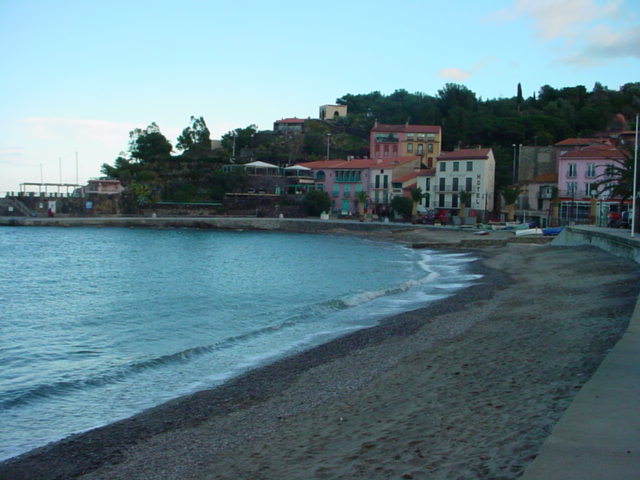 I'm almost finished with the book Suite Francaise, by Irene Nemirovsky, the unfinished collection of two novellas that were written contemporaneously with the historical events that formed the background for their action. (NYT review)
I'm almost finished with the book Suite Francaise, by Irene Nemirovsky, the unfinished collection of two novellas that were written contemporaneously with the historical events that formed the background for their action. (NYT review)With so many books, I find myself skipping over descriptions of people and places because they are boring or cliched, but Nemirovsky's descriptions are very original and economical. The author uses her omniscent narration to good effect; arrogant characters also have their well-intentioned sides, while at the same time Nemirovsky enjoys poking fun at the hypocrisy of members of the middle and upper classes trying to cope with the disruptions of war. In the second half of the book, the calm atmosphere of the occupied French village reminds me of the order and rationality of Imre Kertesz' Fatelessness, the characters who win our admiration are not the heroic, principled ones, but those who focus their decisions and choices around the present day, around current circumstances. It's more principled to refuse to speak to the Germans in their midst, but it's the French women who relent and exchange pleasantries with the soldiers who are the happiest and most successful at continuing their lives instead of putting them on hold. In Fatelessness, there is no heroism, just getting through the day and rationalizing the world as it confronts you; that's how one survives.
The very subject of the book is less about survival than Fatelessness; the point is that the lives of the book's characters are seldom threatened. That brings a subtlety and a nuance to the choices they make that is usually absent from books about World War II. Somehow, this lack of contrast makes the book seem realistic, even though the Holocaust was all too real for those who suffered from it -- including the author of this book, who died at Auschwitz before completing the three subsequent novellas she had foreseen. This book, coupled with books like Fatelessness, contribute to a more complete picture of what Europe and Europeans experienced during World War II.
of the book's characters are seldom threatened. That brings a subtlety and a nuance to the choices they make that is usually absent from books about World War II. Somehow, this lack of contrast makes the book seem realistic, even though the Holocaust was all too real for those who suffered from it -- including the author of this book, who died at Auschwitz before completing the three subsequent novellas she had foreseen. This book, coupled with books like Fatelessness, contribute to a more complete picture of what Europe and Europeans experienced during World War II.
 of the book's characters are seldom threatened. That brings a subtlety and a nuance to the choices they make that is usually absent from books about World War II. Somehow, this lack of contrast makes the book seem realistic, even though the Holocaust was all too real for those who suffered from it -- including the author of this book, who died at Auschwitz before completing the three subsequent novellas she had foreseen. This book, coupled with books like Fatelessness, contribute to a more complete picture of what Europe and Europeans experienced during World War II.
of the book's characters are seldom threatened. That brings a subtlety and a nuance to the choices they make that is usually absent from books about World War II. Somehow, this lack of contrast makes the book seem realistic, even though the Holocaust was all too real for those who suffered from it -- including the author of this book, who died at Auschwitz before completing the three subsequent novellas she had foreseen. This book, coupled with books like Fatelessness, contribute to a more complete picture of what Europe and Europeans experienced during World War II. 
No comments:
Post a Comment